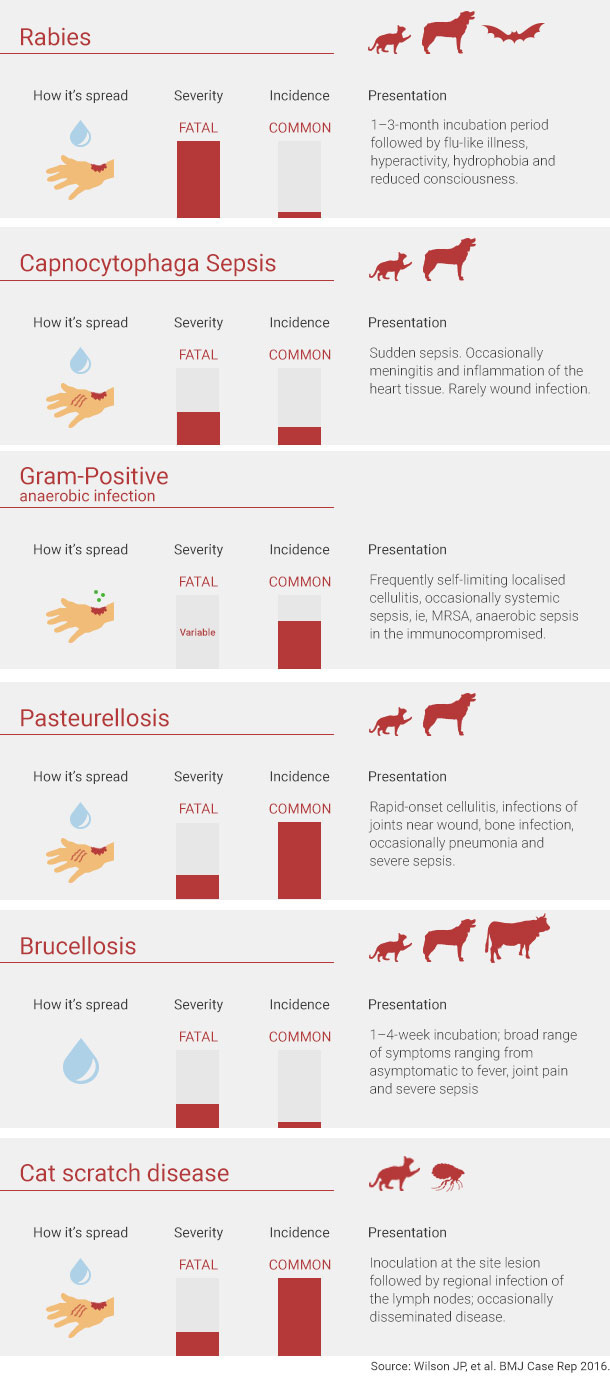Dog 'Kisses' Give Woman Severe Infection

A woman in the United Kingdom developed a potentially life-threatening infection that had an unusual cause: "kisses" from her dog.
The 70-year-old woman was brought to the hospital after she began slurring her speech on the phone and was found slumped over in her chair, according to a new report of her case.
She regained full consciousness at the hospital, and her symptoms appeared to be improving. Doctors initially thought she had suffered a seizure, since she had a history of epilepsy.
But on her fourth day at the hospital, her symptoms got worse: She developed a headache, high fever, chills and diarrhea, and tests showed she had sudden kidney failure, the report said. She was admitted to the intensive care unit for severe sepsis — a potentially life-threatening complication that can develop in people who have infections.

Blood tests revealed that she was infected with a type of bacteria called Capnocytophaga canimorsus, which is found in the mouths of dogs and cats. People who become infected with C. canimorsus get it through bites or scratches from their pets, but transmission through "licks" has been reported as well, the doctors said.
The woman didn't have any signs of scratches or bites, but she reported close contact with her dog, an Italian greyhound, including getting licked by the dog.
"This report highlights that infection [with C. canimorsus] can occur without overt scratch or bite injuries," the doctors wrote in their report, published today (June 30) in the journal BMJ Case Reports. "It also reminds us that the elderly are at higher risk of infection [with this bacterium], perhaps due to age-related immune dysfunction and increasing pet ownership," they said. [Here's a Giant List of the Strangest Medical Cases We've Covered]
Sign up for the Live Science daily newsletter now
Get the world’s most fascinating discoveries delivered straight to your inbox.
It's rare for people infected with C. canimorsus to develop sepsis, but about a quarter of people who do develop sepsis from this bacterium die from the illness, the doctors said.
The woman was treated with antibiotics, and after spending a month in the hospital, she was doing well enough to return home, the report said.
In an earlier report, on 56 cases of C. canimorsus infections in California, researchers at the California Department of Public Health concluded that people may be at increased risk of developing this infection if they have had their spleen removed, or if they abuse alcohol.
Original article on Live Science.

Rachael is a Live Science contributor, and was a former channel editor and senior writer for Live Science between 2010 and 2022. She has a master's degree in journalism from New York University's Science, Health and Environmental Reporting Program. She also holds a B.S. in molecular biology and an M.S. in biology from the University of California, San Diego. Her work has appeared in Scienceline, The Washington Post and Scientific American.









